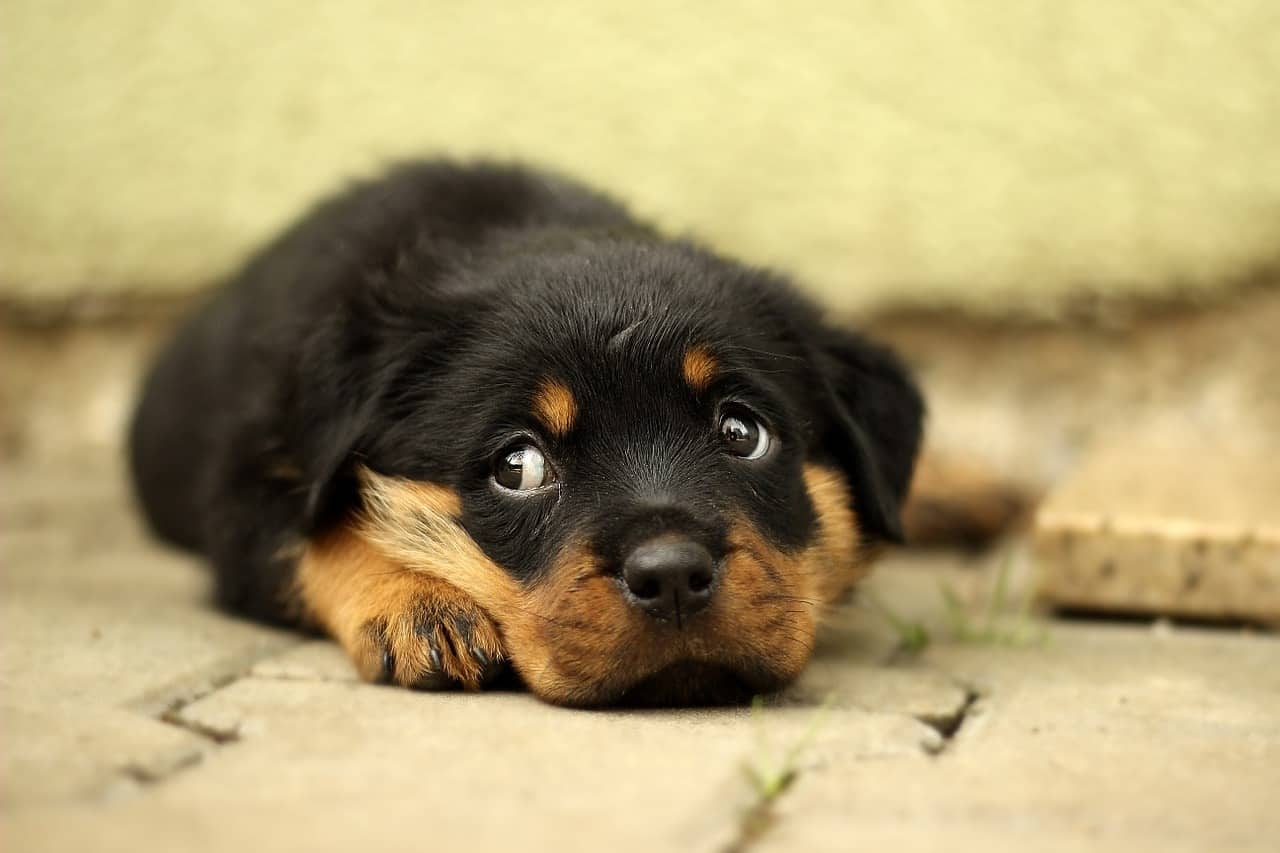The origin of the breed known today as the Rottweiler from Roman shepherd dogs was due to the militant Roman Empire, who dreams of conquering Europe. To achieve her goal, she needed a huge army and an incredible amount of provisions to feed her. Considering that at that time there was no refrigeration equipment at all, the meat intended for the soldiers had to be fresh, and therefore accompany them alive. A dog was needed to transport, escort and protect such provisions on the way and at night camps in long and exhausting marches of the army.

A mastiff-like dog was the best fit for this role.
The campaigns of the Roman army varied in scope, but we are interested in the one that began around 74 AD. The Romans crossed the Alps and settled in what is today known as Southern Germany. There are many testimonies pointing to the vital role played by the brave Roman cattle dogs (herd dogs) in the passage from Rome to the Neckar River.
The conquered territory was called the Land of Flavius, favorably differing from the previous ones with a mild climate, fertile soil and a strategic location. That is why it was decided to erect the city of the Roman Empire on it with all its inherent splendor.
There is no doubt that the descendants of the original Roman cattle dogs guarded herds on it for the next two centuries. around 260 AD the Swabian tribes drove the Romans out of Flavius Land, although they continued to engage in agricultural business and trade in livestock, still needing the help of dogs.
Around the year 700, the local prince ordered the construction of a Christian church on the ruins of the former Roman baths. During the construction, the builders stumbled upon the red tiles that lined the floors of the baths, which was reflected in the name of the city – “From the red tiles” (das Rot Wil). Later it was renamed Rottweil.
The influence of Rottweil as a cultural and commercial city increased every year, and by the middle of the twelfth century, a completely new city with a complex system of fortifications was built next to it, on the high banks of the river. The security of the new place attracted new cattle traders, and butchers began to concentrate in its vicinity. The expansion of the meat market inevitably demanded more and more dogs.
The descendants of the Roman dogs worked diligently until the 19th century, when cattle driving was prohibited, and in addition to everything, the railroad and donkeys replaced dog carts.
The Rottweil butcher dog, as the breed began to be called, fell on hard times.
The need for them has practically disappeared, and yet in those days dogs were kept only for the sake of work. Their number was reduced so sharply that in 1882 at the Heilbronn Dog Show only one was shown, far from being the best representative of the breed.
The Annals of Cynology do not mention the Rottweiler until 1901, when the United Club of Rottweilers and Leonbergers was founded. It did not last long, but left a noticeable mark, since under the influence the first standard of the Rottweiler breed was written. The main thing is that the breed has not lost either its type or its character.
01-1907 Rottweiler gained recognition as a police dog. On January 13, 1907, the German Rottweiler Club was organized, and on April 26 of the same year, the International Rottweiler Club. On August 14, 1921, the National (All-German) Rottweiler Club of Germany – ADRK was created in Würzburg, in which 3400 Rottweilers were registered.

Double registration of dogs and embarrassment in connection with this continued until 1924, when ADRK published the first stud book.
Since its inception, despite the difficulties that arose during World War II, ADRK has managed to remain Germany’s leading breed club. Under his leadership, competent and targeted breeding programs for Rottweilers were carried out in Germany itself and beyond its borders.
The Rottweiler may have evolved physically from its Roman ancestors, but its traits, so much admired in Roman times, have been fully preserved and are the reason why the breed is so highly regarded today.